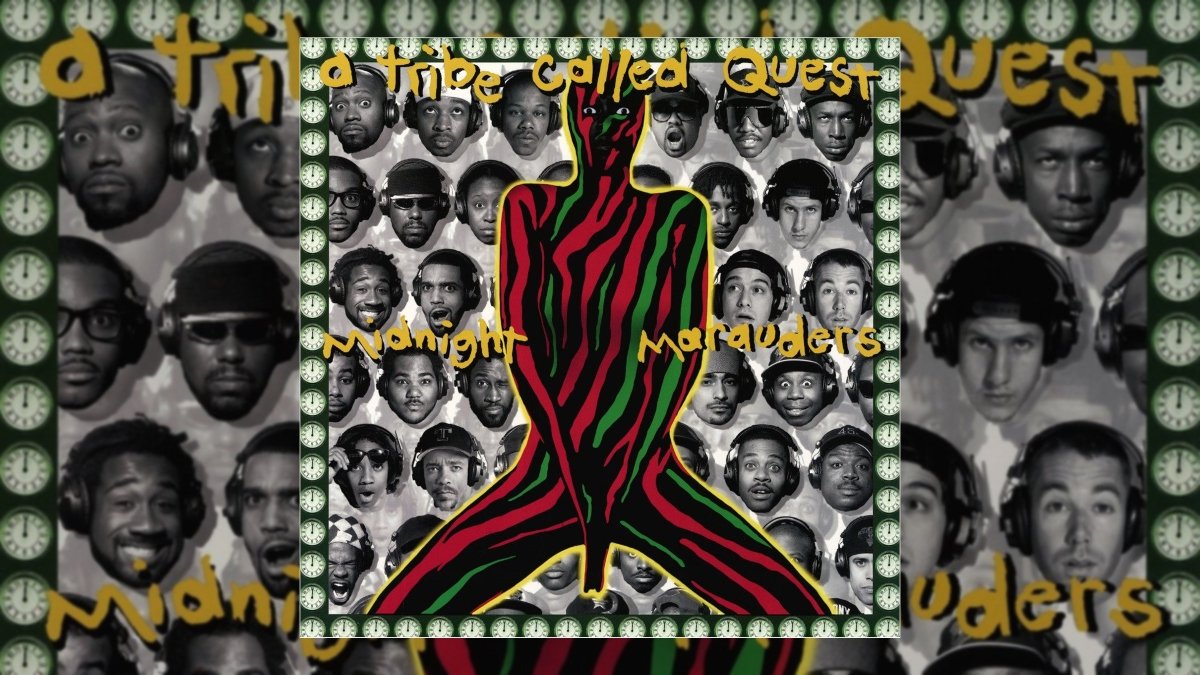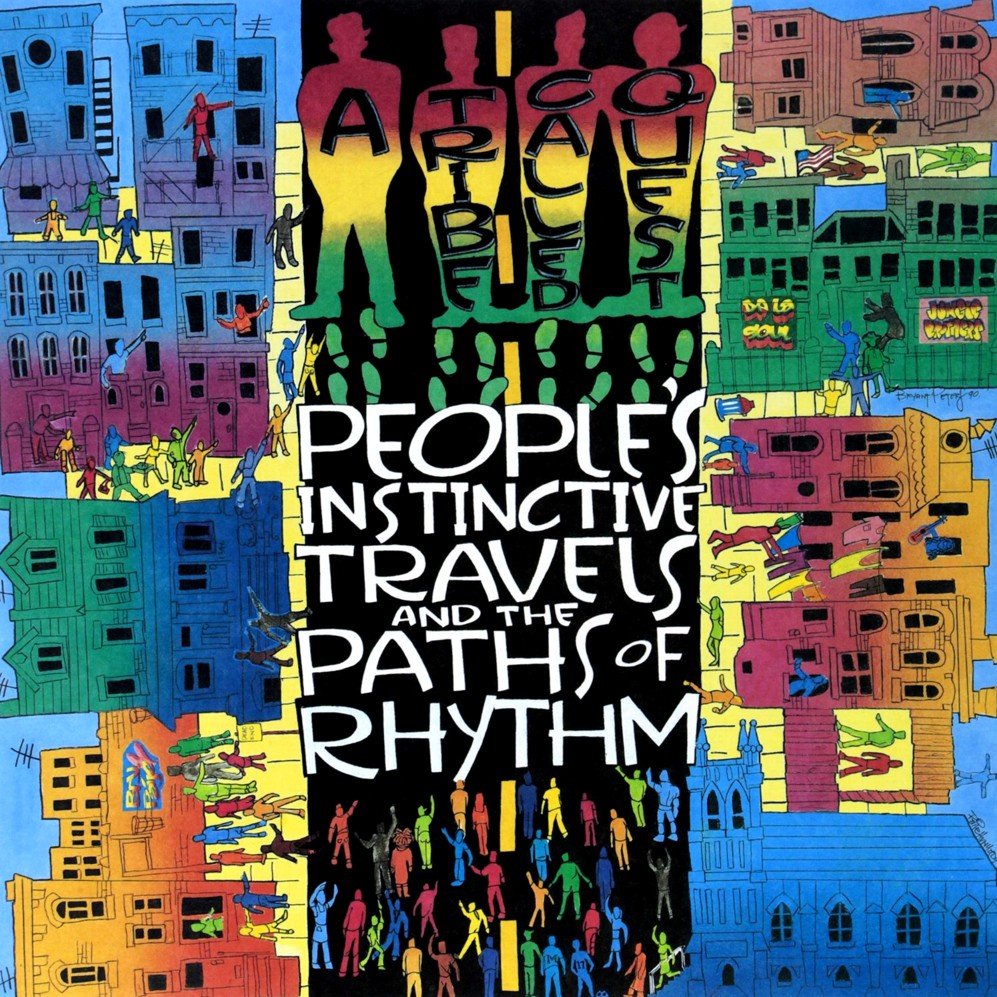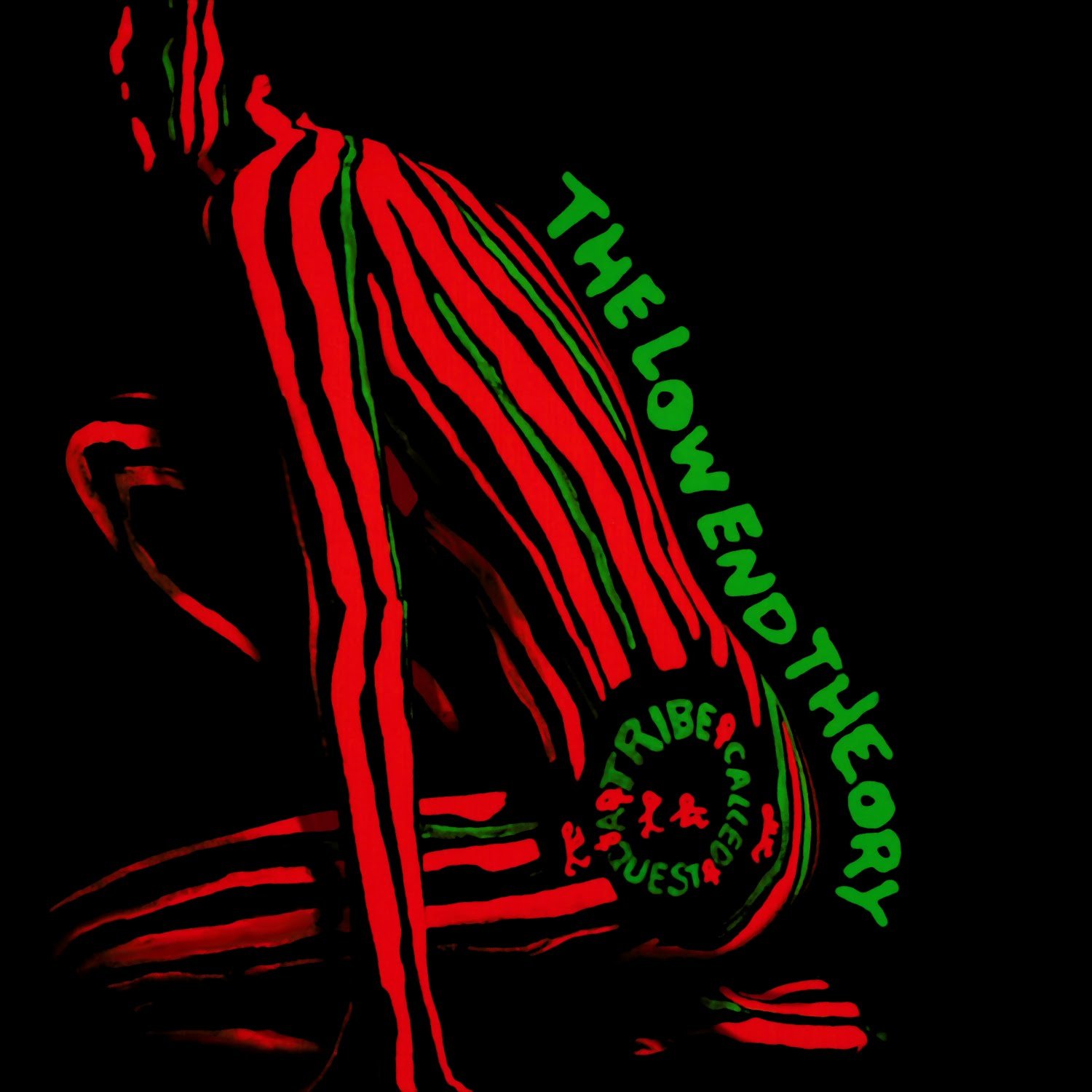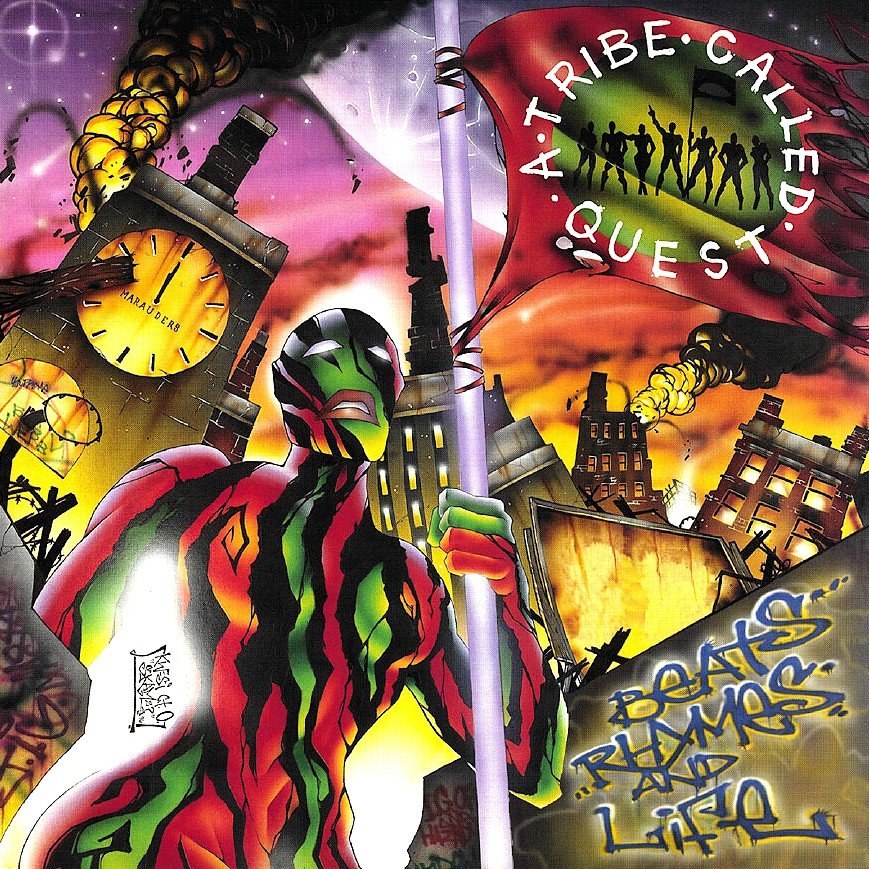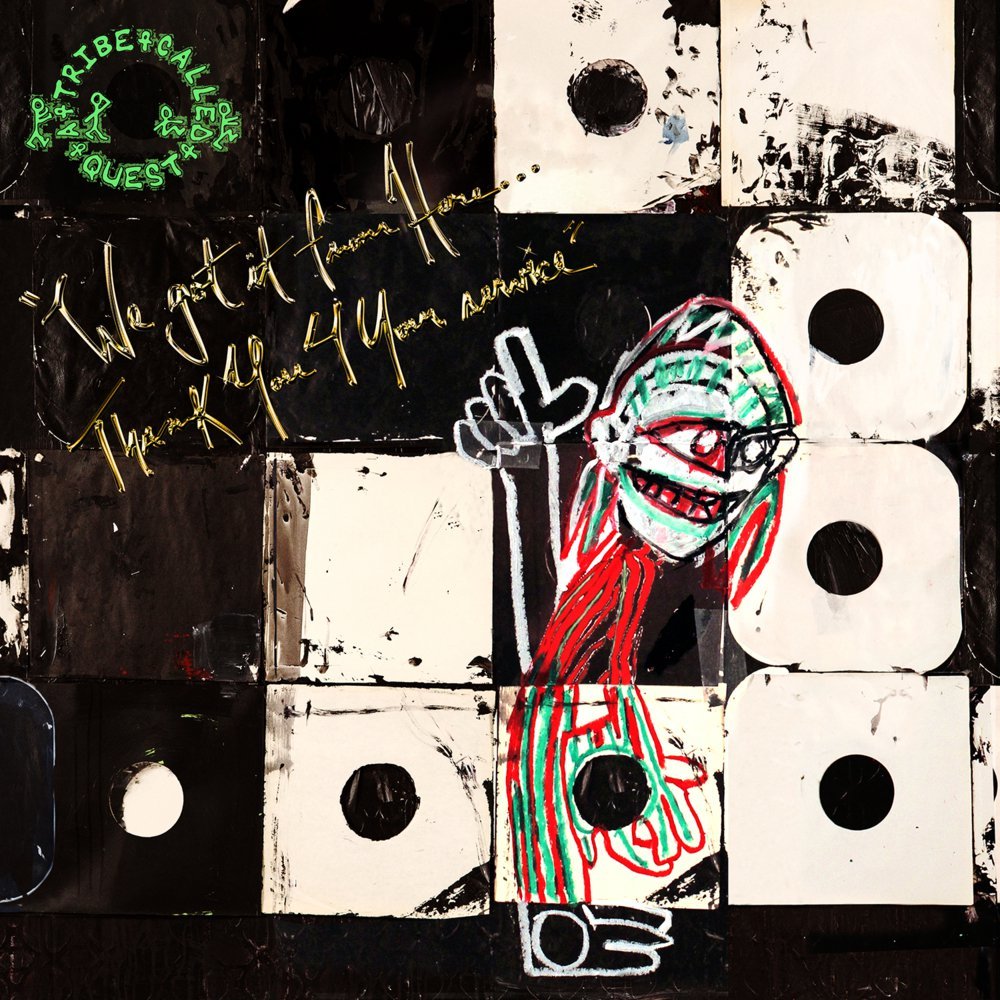Happy 30th Anniversary to A Tribe Called Quest’s third studio album Midnight Marauders, originally released November 9, 1993.
Precise. Bass Heavy. Just right. These are the three qualifiers that encapsulate Midnight Marauders. All of them accurate.
With their third album released 30 years ago, A Tribe Called Quest established that even with two great albums under their collective belts, they weren’t done developing as artists. John “Q-Tip” Davis a.k.a. Kamaal Fareed, Malik “Phife Dawg” Taylor, and Ali Shaheed Muhammed had already earned the adoration of dedicated hip-hop heads and fans of other genres with their previous projects. But with Midnight Marauders, they cemented their legend.
Tribe were in a difficult position when working to put together Midnight Marauders: how do you follow up literally one of the best hip-hop albums of all time? Following their debut People's Instinctive Travels and the Paths Of Rhythm (1990), their sophomore LP The Low End Theory (1991) showcased the group’s vastly improved production chops and rhyming abilities. With their second album, they created perfect music to chill and vibe out to. It was a masterful artistic achievement.
So how do you top that? Well, with Midnight Marauders, Tribe got better at what they were already good at doing. The Low End Theory was known for its trunk rattling lows, both through the use of dynamic baselines and innovative drum tracks, and its use of jazz samples. With Midnight Marauders, Tribe improved upon what they were already great at, while remaining true to what got them there in the first place. Midnight Marauders remains Tribe’s most universally beloved album, appealing to any and all musical audiences.
On Midnight Marauders, Tribe continued to improve musically. Q-Tip has always been a perfectionist when it comes to production; in the Beats, Rhymes, and Life documentary about Tribe’s career, former (and now deceased) manager Chris Lighty described having to go and physically take the Low End Theory album from Q-Tip in order to get the album turned into Jive Records. Here there’s still the attention to detail, but Q-Tip apparently found a way to turn in the album in a timely matter. On the production end, Q-Tip collaborated with Ali Shaheed, as well as Queens homie Large Professor and past collaborator Skeff Anselm (still getting props). They achieved something magnificent in creating one of the best-produced hip-hop albums ever.
The drum tracks on Midnight Marauders were just as sharp and the basslines just as resonant as they had been on their previous projects. Furthermore, Tip and crew continued to earth obscure gems to transform. Their efforts were bolstered by Bob Power, engineer extraordinaire, who rounded out the album’s sound through his ample mixing skills.
Watch the Official Videos:
Tribe worked to make the album’s production simultaneously grittier and more complex. According to Power in an interview with Red Bull Academy, on previous albums Q-Tip had him “clean up” the samples that he used for his beats, by modifying the levels to remove both the surface noise from the records as well as the other instruments present within the sampled track. For Midnight Marauders, Q-Tip instructed Power to leave in any crackles and pops, as well as the “background” instruments in the samples.
One clear example of this technique is “Lyrics to Go,” as demonstrated in the aforementioned Beats, Rhymes, & Life doc. Here Q-Tip samples the keyboard breakdown to Minnie Riperton’s “Inside My Love,” but includes her vocals in the loop so that they play as a constant low wail throughout the track. Paired with an expert chopping of the opening guitar solo from James Brown’s “Just Enough For Storage,” the finished product sounds otherworldly.
Another hallmark of Midnight’s production is the amount of layering. Q-Tip combines different samples and instruments, making the tracks denser this time ‘round. It works to perfection on songs like “Award Tour,” the album’s acclaimed first single. Originally inspired by Jade’s “Don’t Walk Away,” Q-Tip sampled the bassline and created a track that’s a smooth, yet busy production dedicated to the group’s success. On top of the bassline and neck-snapping drums, he adds slowed-down keys taken from Weldon Irvine’s “We Gettin’ Down” and vibraphone sample from Milt Jackson’s “Olinga.” The hook, provided by Trugoy of De La Soul and inspired by the 12” version of Malcolm McClaren’s “She’s Looking Like a Hobo,” is one of Tribe’s most infectious and catchy.
Though the production is Midnight Marauders’ greatest strength, both Q-Tip and Phife demonstrate that they have improved on the mic throughout the album. One of the biggest stories of The Low End Theory was Phife’s development as an emcee, but he steps his game up even further throughout this album. He delivers one of his best verses on “We Can Get Down,” opening the track by rapping, “I'm not your average MC with the Joe Schmoe flow / If you don't know me by now, you'll never know / Stepping on my critics, beating on my foes / The plan is to stay focused, only then I can grow.” Q-Tip delivers an equally dope verse, perfectly timing his flow with the song’s drum track as raps, “Hit the city streets to enhance my soul / I can kick a rhyme over ill drum rolls / With a kick, snare, kicks and high hat / Skilled in the trade of that old boom bap.”
Pound for pound, Midnight Marauders arguably features Tribe’s greatest collection of singles associated with any of their albums. With “Electric Relaxation,” the album’s anthemic second single, Tribe continued to reinforce their unique ability in making fly love songs. It’s one of the hip-hop’s greatest “for the ladies” tracks ever recorded, as Q-Tip and Phife trade lines above their only vice over a bassline and piano riff taken from Ronnie Foster’s “Mystic Brew” and sped-up keyboard notes from Ramsey Lewis’ abstract jazz epic “Dreams.” The lyrics are laid back bliss, as Q-Tip and Phife drop references to LL Cool J’s “Back Seat,” Madelyne Woods, and Siemens Furniture. Phife later revealed the two of them had written each other’s lyrics for the song. That both Tip and Phife were able to adapt them to their own voices speaks to their skills as emcees.
“Oh My God,” the album’s third and final single, is another upbeat party anthem, this time based around a sample of Kool & the Gang’s “Who’s Gonna Take the Weight.” Tip and Phife bounce over the song’s buoyant bassline, ricocheting off each other with palpable energy. The hook, provided by longtime comrade Busta Rhymes adds to the song’s catchiness.
Enjoying this article? Click/tap on the album covers to explore more about A Tribe Called Quest:
Much like The Low End Theory, Midnight Marauders was released in the fall. But while the previous album sounded like a summer album, Midnight sounds like an album built to be listened to during chilled Autumn days and nights. The album’s title track, “Midnight,” is a clear example, as it serves as a soundtrack for young adults making late night excursions through the streets of New York City and getting mixed up in the wrong types of activities. As usual, the song demonstrates Q-Tip’s superior production skills as he bends a guitar sample from George Duke’s ‘North Beach,” warping it and transforming into psychedelic bliss.
Midnight Marauders peaks with “Keep It Rollin’,” which is, in my opinion, one of the two or three best songs that Tribe ever released. It’s also one of the few tracks on the album not produced by Q-Tip, as Large Professor works behind the boards. Atop the ethereal, mellow harmony, sampling a keyboard and flute intro to Roy Ayers’ version of “Feel Like Making Love.” Q-Tip, Phife, and Large Pro all deliver exceptional verses. It’s further testament to Phife’s talents that he pulled off singing the Barney theme song without sounding corny.
The album closes in grand fashion with the epic “God Lives Through.” Combining a guitar sample from David T. Walker’s “On Love” with the horns from Jimmy McGriff’s “Dig On It,” Phife and Q-Tip trade verses that seem to soar as they deliver them. Phife is again in top form as he raps, “Beast of the East, on MCs I have a feast / I eat that ass like quiche, crack a smile like Shanice.” Throughout his verse, Q-Tip rhymes within each line, rapping “I rock to the roll man, yes, I’m a soul man / Bet your bottom dollar Vinia will make you holla / As you stand at attention, did I forget to mention / MCs will give me twenty if I sense that they act funny.”
Though Tribe’s core lineup recorded two more albums after Midnight Marauders, and both Beats, Rhymes and Life (1996) and The Love Movement (1998) were quite enjoyable, they were both lacking a little something in comparison and the group members never seemed quite as committed. It might have had to do with the dissolution of the Native Tongues, or it may have had to do with the fact that they were beginning to realize they wanted to move on from the group.
No matter the case, Midnight Marauders capped off an incredible three-album run that barely seems conceivable these days. The fact that Tribe pulled it off is a large part of why their music and appeal are timeless, and why albums like this will forever remain crown jewels in hip-hop lore.
LISTEN:
Editor's note: this anniversary tribute was originally published in 2018 and has since been edited for accuracy and timeliness.

